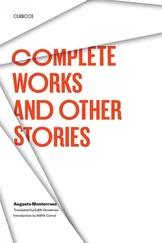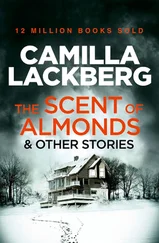Philip Dick - Complete Stories 3 - Second Variety and Other Stories
Здесь есть возможность читать онлайн «Philip Dick - Complete Stories 3 - Second Variety and Other Stories» весь текст электронной книги совершенно бесплатно (целиком полную версию без сокращений). В некоторых случаях можно слушать аудио, скачать через торрент в формате fb2 и присутствует краткое содержание. Жанр: Фантастика и фэнтези, на английском языке. Описание произведения, (предисловие) а так же отзывы посетителей доступны на портале библиотеки ЛибКат.
- Название:Complete Stories 3 - Second Variety and Other Stories
- Автор:
- Жанр:
- Год:неизвестен
- ISBN:нет данных
- Рейтинг книги:3 / 5. Голосов: 1
-
Избранное:Добавить в избранное
- Отзывы:
-
Ваша оценка:
- 60
- 1
- 2
- 3
- 4
- 5
Complete Stories 3 - Second Variety and Other Stories: краткое содержание, описание и аннотация
Предлагаем к чтению аннотацию, описание, краткое содержание или предисловие (зависит от того, что написал сам автор книги «Complete Stories 3 - Second Variety and Other Stories»). Если вы не нашли необходимую информацию о книге — напишите в комментариях, мы постараемся отыскать её.
Complete Stories 3 - Second Variety and Other Stories — читать онлайн бесплатно полную книгу (весь текст) целиком
Ниже представлен текст книги, разбитый по страницам. Система сохранения места последней прочитанной страницы, позволяет с удобством читать онлайн бесплатно книгу «Complete Stories 3 - Second Variety and Other Stories», без необходимости каждый раз заново искать на чём Вы остановились. Поставьте закладку, и сможете в любой момент перейти на страницу, на которой закончили чтение.
Интервал:
Закладка:
Philip K. Dick
Complete Stories 3 - Second Variety and Other Stories
Introduction
By Norman Spinrad
Philip K. Dick's debut story, Beyond Lies the Wub, was first published in 1952. This volume, SECOND VARIETY, contains 27 short stories published between 1952 and 1955, when his first novel, SOLAR LOTTERY, appeared. What is more, it does not include every story he published during the first four years of his career either.
That in itself is quite remarkable. Few writers could boast such prodigious publication in the first four years of their careers, even in this period, when markets for short sf were relatively abundant and editors had many slots to fill. And while it must be admitted that there are a certain number of fairly trivial gimmick stories in this book, the majority of them already show many of the unique virtues of Dick's more mature work, and even the least of them are written in his unmistakable voice.
four years of their careers, even in this period, when markets for short sf were relatively abundant and editors had many slots to fill. And while it must be admitted that there are a certain number of fairly trivial gimmick stories in this book, the majority of them already show many of the unique virtues of Dick's more mature work, and even the least of them are written in his unmistakable voice.
There is not really an action-adventure formula story in here. No space opera. No nuts and bolts. No fully-developed alien civilizations. No intrepid stock heroes, villains, mad scientists, no real good guys versus bad guys at all. From the very outset, Dick wrote as if the commercial conventions of the sf genre did not exist. Even the one-punch gimmick stories are Dickian gimmicks. From the beginning, Dick was reinventing science fiction, turning it into a literary instrument for his own concerns, and yes, obsessions.
What we have here is a kind of fascinating time capsule, 27 stories published before Philip K. Dick's first novel, the compressed short fiction apprenticeship of a writer who was to go on to become one of the great novelists of the twentieth century and arguably the greatest metaphysical novelist of all time.
Dick began writing during what at least in a publishing sense was the greatest transformation that science fiction has ever seen. In the early 1950s, the magazines were still the dominant mode of sf publication, meaning that short fiction was still the dominant form. By the time he published SOLAR LOTTERY in 1955, the paperback book was on its way to becoming the dominant publishing mode, and the novel therefore the dominant form.
In the 1950s, with the standard advance for an sf novel being about $1500, any writer trying to eke out a precarious living writing sf was still constrained to crank out short stories for the magazines. And what with novel slots still being limited, one was also constrained to make one's mark as a short story writer before a publisher was about to grant a novel contract at all.
Nor, in hindsight, as evidenced by this volume, was this, in literary terms at least, a bad thing, even for a writer like Dick, whose natural metier was the novel. These 27 stories, and the others published before SOLAR LOTTERY, were an apprenticeship in the best sense of the term.
Reading these stories one after the other in a single volume, one is indeed struck by a certain sameness, a certain repetitiveness, a certain series of recurrences, a sense of a writer staking out the territory of his future oeuvre. We would see the same thing in the short fiction of other writers of the period, and even much later, in the early short fiction, for example, of John Varley, William Gibson, Lucius Shepard, Kim Stanley Robinson.
But in this book, what we see is a uniquely Dickian sameness.
Most sf writers who stake out a territory in their early short fiction that they will later explore at greater length and depth tend to create a consistent universe like Larry Niven's "Known Space" or recurring characters like Keith Laumer's Retief or a historical template like Robert A. Heinlein's "Future History," and not infrequently all three.
In part this is a commercial strategy. A new writer naive or crazy enough to actually attempt a career as a full-time sf short story writer has to write a lot of fiction rather rapidly to stay afloat. It is much easier to reuse settings, history, and characters than to begin from zero each time out, and, as network TV has long proven, the episodic series is the fastest way to build an audience too.
That, however, is not what Philip K. Dick did. There are no real recurring characters in these stories. There is no attempt to set them all in a consistent universe. Except for some rather tenuous connections between Second Variety, Jon's World, and James P. Crow, there is really no attempt at a consistent future history either.
But there most certainly are recurrences of theme, imagery, and metaphysical concerns, and we will see them again and again in Dick's subsequent novels, expanded upon, recomplicated, deepened, made quite vast.
The Earth reduced to a nuclear ash heap. Robot weapons systems evolving towards baleful anti-empathetic pseudo-life. Human freedom ground down in the name of military security, economic prosperity, or even order for its own sake. Interpenetrating realities. Ironic time-loops and paradoxes. Ordinary people holding ordinary jobs as the heroes and heroines trying to muddle through.
prosperity, or even order for its own sake. Interpenetrating realities. Ironic time-loops and paradoxes. Ordinary people holding ordinary jobs as the heroes and heroines trying to muddle through.
But they show something much more. At a time when there was no little danger in voicing such views, Dick spoke out loud and clear against the prevailing hysterias of the times -- against militarism, security obsession, xenophobia, and chauvinism.
Further, what these stories juxtapose against these large scale political evils are not equally large scale political virtues but the intimate small scale human and spiritual virtues of modest heroism, caritas, and most of all the empathy that, in the end, is finally what distinguishes the human from the machine, the spiritual from the mechanical, authentic being from even the most cunningly crafted pseudo-life.
And if we already see here what was to be the great theme and the spiritual core of Philip K. Dick's whole career, so too do we see in these stories the genesis of the characteristic literary technique which so cogently brings it down to an intimate and specific human level -- Dick's use of multiple viewpoint characters.
True, his use of multiple viewpoint techniques is not always perfect in these early stories. Sometimes he cavalierly shifts viewpoint within a scene for mere narrative convenience. Sometimes he introduces a new viewpoint character in media res just to give us a scene he cannot easily render from viewpoints he has already established. Sometimes a viewpoint character appears for only a few paragraphs and then disappears.
Dick is learning multiple viewpoint technique in these stories. Indeed, it may be more accurate to say that he is inventing it, for few if any writers had really used multiple viewpoint this way before Dick, and all of us who were to adopt it later owe a great debt to him, whether we consciously realize it or not.
For what the Dickian multiple viewpoint technique allows the writer to do is to tell the story from within the consciousness, the spirit, the heart, of several characters, not merely one. It allows intimacy, it grants the reader empathy, with the multiplexity of the human spirit within the confines of a single tale. And in the hands of a master like Philip K. Dick, it becomes a series of windows into the metaphysical multiplexity of reality itself, the perfect merger of theme and form.
Читать дальшеИнтервал:
Закладка:
Похожие книги на «Complete Stories 3 - Second Variety and Other Stories»
Представляем Вашему вниманию похожие книги на «Complete Stories 3 - Second Variety and Other Stories» списком для выбора. Мы отобрали схожую по названию и смыслу литературу в надежде предоставить читателям больше вариантов отыскать новые, интересные, ещё непрочитанные произведения.
Обсуждение, отзывы о книге «Complete Stories 3 - Second Variety and Other Stories» и просто собственные мнения читателей. Оставьте ваши комментарии, напишите, что Вы думаете о произведении, его смысле или главных героях. Укажите что конкретно понравилось, а что нет, и почему Вы так считаете.












